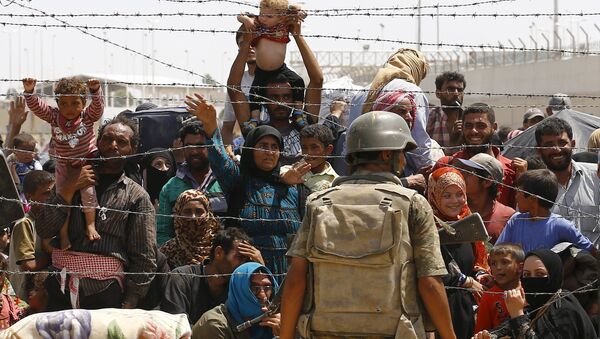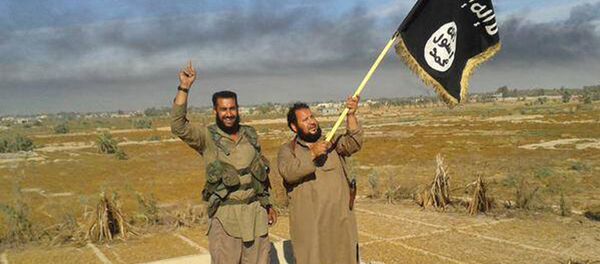“Oil is also taxed,” she added. “Oil is also taxed with royalties. Whoever manages the oil production and the smuggling, pays a royalty.”
But then, Napoleoni explained, there is all the rest of the activity. And smuggling of any kind is very important.
“And finally, it is smuggling of migrants. Because the IS levies a tax on every single individual who crossed the border. Most of the crossing is done by the traffickers in the territory which is controlled by the IS in order to go to Turkey. This is also huge, huge revenue which is about 500,000 euro per week.”
“This is a war economy, which is tapped into the economies of the neighboring countries, which are also affected by the war economy,” she said.
“They are selling oil in Kurdistan, they are selling oil in the south of Syria, they are selling oil at the border with Turkey. And the same thing with smuggling products from food to batteries. Unless we pacify completely the border area, which is impossible. There is no way we can stop this kind of trade.”
With regards to kidnapping, Napoleoni explained that it was initially one of the main sources of revenue. Between 2014 and 2015, the group actually made between $75-100 million, but now migrant smuggling is much more profitable.
“The IS does not do kidnapping, it is done by criminal groups which the sell hostages to the Islamic State. Because IS is an infrastructure for negotiation, it is an investment. After some time a hostage might become valuable to them. But all in all, today kidnapping does not generate as much as the smuggling of migrants.”
But, she added, what is more serious than the actual cash aid or cash from sales is the arms delivered by the US-led coalition, which are getting into the wrong hands.




